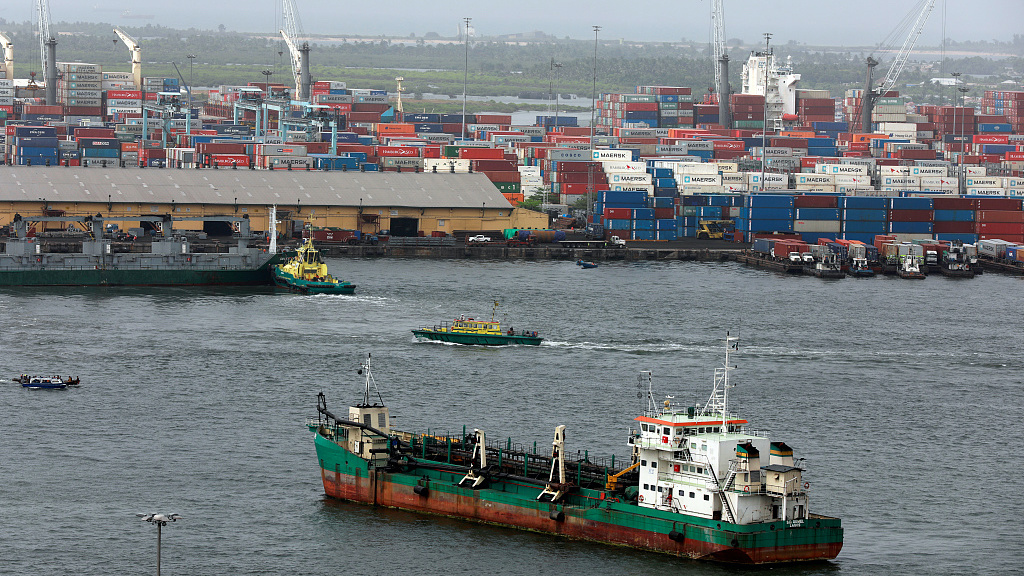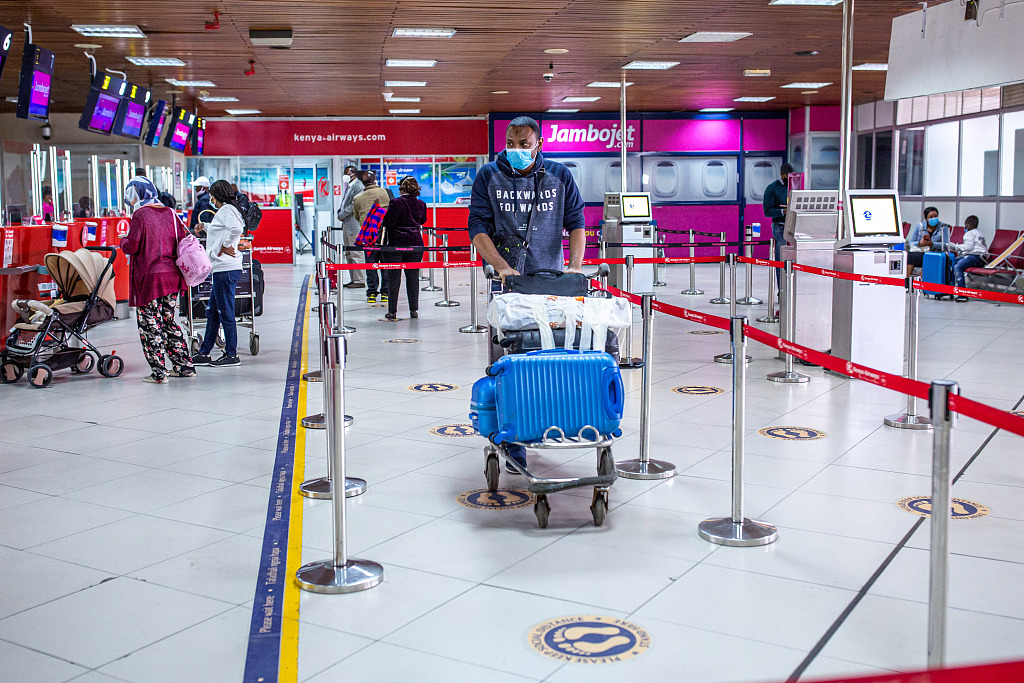
A port in Nigeria's commercial capital Lagos, Nigeria, March 16, 2020. /VCG
A port in Nigeria's commercial capital Lagos, Nigeria, March 16, 2020. /VCG
Editors Note: Stephen Ndegwa is a Nairobi-based communications consultant and international affairs columnist. The article reflects the author's views, and not necessarily those of CGTN.
The fact that the African continent is poised to be one of this century's frontiers of growth and opportunity is not in doubt. Although faced with several social, economic and political challenges, the African resilience has worked for the survival of nations that would have otherwise been totally destroyed decades, or even centuries, ago.
Sadly, the emergence of the COVID-19 pandemic in January has put a halt in the work, pausing the continent's march to greater things. According to the World Bank, coronavirus has created the first recession in the sub-Saharan Africa region in 25 years, with growth forecast hurtling down to between -2.1 percent and -5.1 percent in 2020.
On September 1, Ghana's Finance Minister Ken Ofori-Atta seemed to echo these sentiments when he stated that, "we are in the middle of the first recession in sub-Saharan Africa in the last 25 years" during a virtual meeting of the African Development Bank (AfDB) where he serves as chairman.
According to the AfDB, Africa's economic growth has stabilized at 3.4 percent in 2019, and was predicted to rise to 3.9 percent in 2020, and 4.1 percent in 2021.
Even as recovery of Africa's economy is expected to gradually start next year, economic experts forecast that the continent could still lose about 250 billion U.S. dollars in revenue. Many African countries are facing a slump in gross domestic product of up to 15 percent, with the region facing between 37 billion and 79 billion U.S. dollars in estimated output losses this year.
But the current scenario is not peculiar to Africa. The pandemic has thrown the world into similar disarray, "reducing agricultural productivity, weakening supply chains, increasing trade tensions, limiting job prospects, and exacerbating political and regulatory uncertainty."

A passenger wearing a protective face mask pushes a luggage trolley towards the check-in desks at Jomo Kenyatta International Airport in Nairobi, Kenya, July 15, 2020. /VCG
A passenger wearing a protective face mask pushes a luggage trolley towards the check-in desks at Jomo Kenyatta International Airport in Nairobi, Kenya, July 15, 2020. /VCG
But it is not all gloom. Barring the current global economic recession caused by the pandemic, the future is looking bright, with Africa having several strengths that it can leverage on to emerge as a global economic powerhouse. Indeed, almost half of the 40 fastest-growing economies are in the continent, with three countries among the top five. According to the FocusEconomics website, these include Rwanda which is growing at 7.7 percent, Senegal at 7.3 percent, and Ethiopia at seven percent.
It is expected that, among other internal and external factors, Africa's undying spirit and untapped massive potential will come to its aid to gird itself for the necessary post-recovery initiatives that have to be implemented in the next couple of years.
Indeed, ways of overcoming the devastating economic effects of the pandemic will be top of the agenda in the upcoming virtual World Economic Forum on Africa to be held later this month in Addis Ababa, Ethiopia.
Africa's vast youthful population is also a great asset in its future prospects. Estimates show that up to three-quarters of Africa's population is below 35 years old, which is a boon to innovation and entrepreneurship. This digitally savvy generation will use its ingenuity to exploit the vast opportunities in the information communication technology sector.
The coronavirus pandemic has also been a boon for the manufacturing sector, like companies producing hygiene based products and services. With proper standardization, production of these products, for example face masks and sanitizers, could be a saving grace in the short and medium term by creating thousands of self-employment opportunities.
Although this businesses is not expected to be as lucrative post-corona crisis, those who reinvest the incomes will contribute to growth of the job market and expansion of the business field.
Economic stimulus packages in Africa should help to build the capacity of the informal sector by funding small industries move to mass production. With the disruption of global supply chains, this is a target area for policy intervention.
Luckily, Africa also has strong, genuine and tested friends who will also come in handy. For instance, notwithstanding its own challenges in fighting the pandemic, China has approached, and closely engaged, many African countries in fighting the disease. The spirit of this outreach is captured in a government white paper, China's Peaceful Development Path, released in December 2005, which states that, "peace, opening-up, cooperation, harmony and mutually beneficial policies remain our position, philosophy, doctrine and pursuit."
Moreover, concrete projects like the Belt and Road Initiative (BRI) is transforming the region's economies in unprecedented ways. By March 2020, 138 countries had joined the BRI by signing a memorandum of understanding, 38 out of which are Sub-Saharan Africa. The BRI is creating an open world economy and promote economic globalization by meeting the common aspirations of African countries for prosperity and development through foreign trade and investment.
It is empowering countries to tackle their own challenges, thus the huge impact and interest globally. BRI has been termed as the current largest platform for international cooperation, which should enable Africa become a player in global trade, investment and finance.
(If you want to contribute and have specific expertise, please contact us at opinions@cgtn.com)